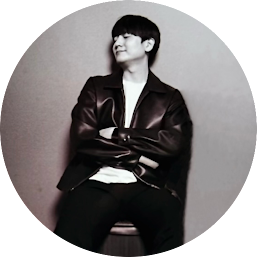Discover the fascinating world of Korean language and culture by learning Hangeul, the unique and scientifically-designed Korean alphabet.

Unlocking the Secrets of Hangeul: A Beginner's Guide
Introduction

The Korean language, supported by its unique writing system Hangeul, has been a cornerstone of Korean identity for centuries. Logical, creative, and easy to learn, Hangeul is widely celebrated as one of the most scientific alphabets in the world. As globalization brings Korea to the center of pop culture and business, learning this language opens doors to opportunity and deeper cultural understanding.
Background & Cultural Context

Before the invention of Hangeul in the 15th century, Koreans relied on complex Chinese characters (Hanja). Recognizing the limitations, King Sejong of the Joseon Dynasty created a new system in 1443, designed for all classes to read and write. Hangeul’s 14 consonants and 10 vowels form thousands of syllable blocks, embodying both practicality and cultural pride. Today, October 9th is celebrated as Hangul Day in South Korea.
Key Highlights
Unique Writing System
Hangeul’s design is highly logical, consisting of consonant and vowel clusters arranged into blocks. With over 11,000 possible syllables, it provides flexibility while remaining intuitive even for beginners.
Grammar and Sentence Structure
Korean follows a subject–object–verb order. Verbs always come at the end, and honorifics play a crucial role in showing respect. Understanding these cultural nuances is as important as learning vocabulary.
Vocabulary
Korean vocabulary is a mix of native words, Sino-Korean terms, and modern loanwords from English and Japanese. Homophones are common, making context essential for accurate understanding.
Practical Tips
- Start with basics: Learn Hangul first — it can be mastered in a few days with practice.
- Focus on pronunciation: Listen to native speakers and mimic intonation; Korean vowels can be tricky.
- Immerse yourself: Watch K-dramas, listen to K-pop, or join language exchanges to practice naturally.
FAQ
Q: Is Korean hard to learn?
A: Hangul is easy to master, but grammar and honorifics require practice. Consistency is key.
Q: Can I learn Korean alone?
A: Yes. Many free apps, YouTube lessons, and online tutors can guide your journey.
Q: How long to become fluent?
A: Depending on study time, basic fluency can take 1–2 years; advanced fluency may take longer.
Q: Is Korean spoken in North Korea too?
A: Yes, but with some vocabulary and accent differences between North and South.
Q: Is Korean useful for careers?
A: Absolutely — Korea is a hub for tech, entertainment, trade, and education, making Korean skills a strong asset.
Conclusion
Hangeul is not just an alphabet — it’s a cultural treasure and a gateway into Korea’s history and society. Whether you’re a student, traveler, or professional, learning Korean offers both personal and practical rewards. Start small, stay consistent, and let the beauty of Hangeul guide your journey into one of the world’s most fascinating languages.
Want to dive deeper into Korea?
Visit our YouTube channel and subscribe for thoughtful videos about Korean culture:
https://www.youtube.com/channel/UC5bGr7yGb8eHZsRtgpuTvXA




0 Comments